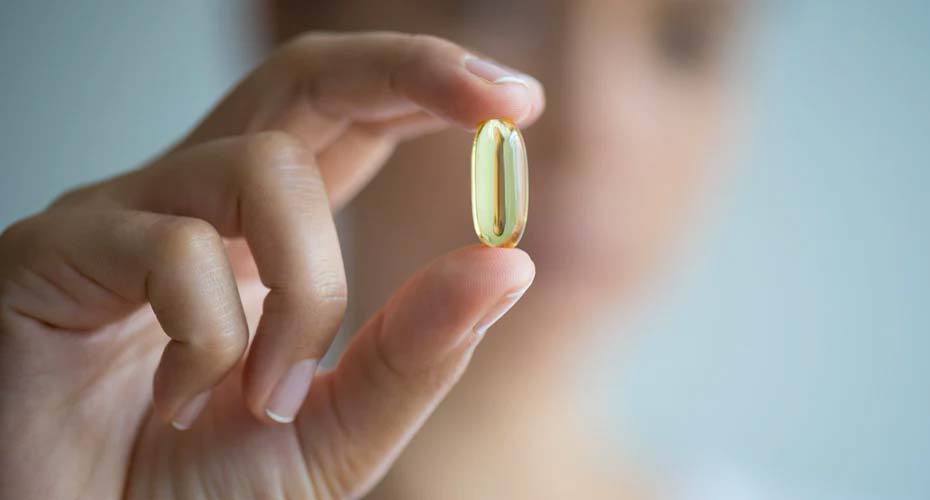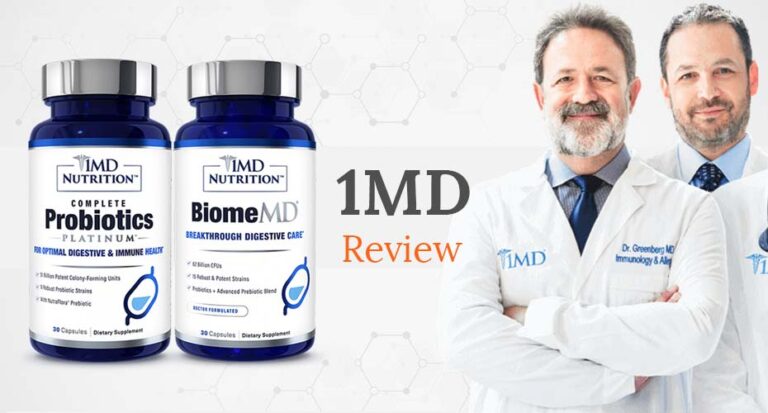What are Prenatal Vitamins?
Getting enough nutrients during pregnancy can be challenging due to morning sickness, food aversions, and fleeting cravings. Even when eating a balanced meal, it is still possible to miss crucial nutrients in your diet.
Prenatal vitamins are specially formulated to fill nutritional gaps during pregnancy. They also provide essential nutrients that support the health of both the mother and the baby. They also prevent serious pregnancy complications and congenital disabilities. [1] For these reasons, prenatal vitamins are recommended for pregnant women and those trying to conceive.
However, there are numerous options available, each with varying ingredients and benefits.

Best Prenatal Vitamins – Image/Wellness Digest
Best Prenatal Vitamins 2024
- Ritual Essential Prenatal Multivitamin – Best Overall
- Garden of Life Prenatal Multi + DHA
- Smarty Pants Prenatal Formula Daily Gummy Multivitamin
- FullWell Prenatal Multivitamin
- NatureMade Prenatal Multi + DHA – Best Budget Option
- Zahler Prenatal + DHA
- Nordic Natural Prenatal DHA
1. Best Overall | Ritual Essential Prenatal Multivitamin
Ritual prenatal vitamins contain 12 essential vitamins and minerals suitable for pregnant women. among the nutrients are folate, iron, omega-3, boron, choline, vitamin B12, D, E, and K2. These vitamins promote brain health and prevent neural tube defects. They also enhance red blood cell formation and maintain bone health. The prenatal comes in a delayed-release capsule design that dissolves in the small intestine for maximum absorption.
2. Garden of Life Prenatal Multi + DHA
Garden of Life uses organic and plant-based ingredients to create this high-quality prenatal multivitamin. The prenatal vitamin comes in the form of soft gel and contains iron, folic acid, zinc, and DHA. It is also NSF certified, so you are guaranteed that it has quality ingredients and it is free from harmful elements. However, be advised that the product contains plant-based iron that is not easily absorbed; therefore, it is not ideal for anemia during pregnancy.
3. Smarty Pants Prenatal Formula Daily Gummy Multivitamin
Smarty Pants prenatal gummies are an excellent option for those who have trouble swallowing tablets or capsules. The formula contains a blend of the finest ingredients, including choline, folate, iron, DHA, omega-3, and vitamin A, D, E, K, and B12. This prenatal vitamin is third-party tested and free of synthetic ingredients, artificial colors, and allergens. However, it contains added sugar, which is unsuitable for women trying to manage their blood sugar.
4. FullWell Prenatal Multivitamin
Fullwell Prenatal Multivitamin is formulated using evidence-based ingredients. It contains nutrients like calcium, folate, iron, vitamin B complex, magnesium, and choline. These ingredients ensure a healthy conception and pregnancy. The formula is third-party tested and is free of harmful components such as BPA, glyphosate, and heavy metals. It is also free of allergens such as peanuts, dairy, and gluten.
5. Nature Made Prenatal Multi + DHA
Nature Made is famous for manufacturing high-quality prenatal multivitamins at an affordable price. The prenatal multi provides an array of essential nutrients such as iron, folic acid, magnesium, calcium, and DHA that helps you meet the nutritional requirements of pregnancy. All the ingredients are packaged in one convenient capsule in the recommended doses. The manufacturer recommends taking one pill a day with meals for maximum absorption.
6. Zahler Prenatal + DHA
Zahler Prenatal + DHA is a well-balanced, synergistic mix that gives your growing baby the nutrients they need in the right amounts for absorption, metabolism, and maximum health. The formula contains pure ingredients that meet nutraceutical standards. It is fortified with DHA for eye and brain development. It also contains folate, zinc, iron, magnesium, and letter vitamins for optimal nutrition and health. It comes as soft gels that are gluten-free, dairy-free, and non-GMO.
7. Nordic Natural Prenatal DHA
Nordic prenatal DHA is a natural multivitamin for pregnant women. It is available in strawberry-flavored and unflavored soft gels that are easy to swallow. It contains pure ingredients like omega-3 and Vitamin D3 for immune support and optimal health. The formula is non-GMO and third-party tested. It is also made in a zero-waste facility that surpasses the strictest global standards for freshness and purity.
Factors to Consider Before Purchasing the Best Prenatal Vitamins
Key Nutrients
Best Prenatal Vitamins offer a variety of nutrients. However, they must contain key ingredients that support optimal health for the mother and baby. You can get these nutrients in your diet, but prenatal supplements fill any nutritional gaps.
Look out for the following ingredients:
Folic acid helps the body make red blood cells that deliver oxygen throughout the body. Folic also prevents neural tube defects and aids in healthy brain development. [2] It also reduces the risk of pregnancy complications such as heart diseases, preterm labor, cleft palate, and other birth abnormalities. [3]
Iron helps in the production of hemoglobin. It helps raise hemoglobin levels and correct iron deficiency. [4] It also treats anemia in pregnancy and supports metabolism and facilitates enzymatic processes in the body.
Calcium strengthens the baby’s bones and teeth. It also promotes healthy muscle and nerve function.
Vitamin D helps in calcium absorption. It also promotes healthy bones and teeth, as we mentioned in another OsteoMD Reviews article on a health supplement containing this component.
DHA is an omega-3 fatty acid that is found in fish. It supports the development of the brain and nervous system. [5] It also increases birth weight and prevents preterm labor and postpartum depression.
Dosage
It is crucial to read the supplement facts to learn the ingredients in the supplement and the dosage of each. Ensure that each component is within the recommended daily value for pregnant mothers. You can do so by checking the Tolerable Upper Intake Levels or by consulting a health care professional.
Your healthcare provider will access your nutritional needs and recommend the appropriate dosage to correct any deficiency and prevent toxicity. They will also review your diet and help you optimize your nutrient intake through food.
Brand Reputation
Research the brand’s reputation before purchasing a prenatal supplement. Buy from companies with third-party testing since their products do not contain harmful ingredients. Also, check the companies’ certifications. Most reputable companies will have FDA approval or NSF certification.
Reputable companies also use the recommended daily allowance for each ingredient. They also have high customer satisfaction and positive reviews online.
Potential Side Effects
Prenatal vitamins can cause side effects such as constipation caused by iron, nausea, stomach cramps, and bloating. Severe side effects include hives, itched skin, difficulty breathing, and chest pain. If you experience these symptoms, stop the medication and see a doctor immediately.
Drug Interactions
Prenatal vitamins may interact with other medications and affect their efficacy. Therefore, always have your doctor review the medications you are on and the potential drug interactions between the meds and the supplements.
FAQ
Q: Why are Prenatal Vitamins Essential?
A: During pregnancy, micronutrient requirements increase significantly. You must eat a balanced diet and take prenatal vitamins to meet this nutritional demand. The vitamins fill in dietary gaps that the diet cannot meet. They also nourish the baby and prevent severe pregnancy complications and birth abnormalities.
Q: When Do I Start Taking the Prenatal Vitamins?
A: The best time to start prenatal vitamins is three months before conceiving. Research shows that taking folic acid before conception lowers the risk of neural tube defects. [6] It also optimizes your health and prepares your body for pregnancy.
If you are not already taking a prenatal supplement, start taking one as soon as you discover you are pregnant. You will continue taking the supplement during the pregnancy and a few months after birth. However, you can buy a postpartum supplement to meet your nursing needs after birth.
Q: Can Prenatal Supplements Help you Get Pregnant?
A: Prenatal vitamins do not directly enhance fertility. Instead, they help resolve nutritional deficiencies affecting your ability to conceive. They also optimize your health and increase your chances of having a safe pregnancy. Additionally, prenatal vitamins with vitamin B12 and folate are associated with successful pregnancies in women undergoing assisted reproduction. [7]
Q: Are Prenatal Vitamins Safe?
A: Prenatal vitamins are generally safe. However, always consult your doctor before starting a new supplement. Some supplements may contain allergens and synthetic ingredients that can cause serious side effects to you and the baby.
Q: Are Prenatal Supplements FDA-Approved?
A: FDA does not regulate supplements as it does medication. However, they oversee the manufacturing process and ensure that the ingredients in these supplements are safe. That is why choosing a product from an FDA-approved facility is essential.
Conclusion
Nutrition is a top priority during pregnancy. Certain nutrients are essential for the health of the fetus and the mother, and a balanced diet cannot provide them all in the recommended dose. Taking a prenatal vitamin fills these nutritional gaps and optimizes your health and the baby.
Nutritional experts and health care provider highly recommend the prenatal vitamins in this review. Overall, the best multivitamins for women is Ritual Essential Prenatal Multivitamin. It provides the correct dosage of nutrients to keep you and your baby healthy. It is also free of harmful ingredients and is safe for consumption.
At Wellness Digest, our sourcing guidelines are strict and we only use primary references for our articles including peer-reviewed studies, academic research institutions, and medical associations. You can learn more about how we ensure our content is accurate and current by reading our editorial policy.
- Shah PS, Ohlsson A; Knowledge Synthesis Group on Determinants of Low Birth Weight and Preterm Births. Effects of prenatal multimicronutrient supplementation on pregnancy outcomes: a meta-analysis. CMAJ. 2009 Jun 9;180(12):E99-108. doi: 10.1503/cmaj.081777. PMID: 19506270; PMCID: PMC2691425.
- Dessie, M. A., Zeleke, E. G., Workie, S. B., & Berihun, A. W. (2017). Folic acid usage and associated factors in the prevention of neural tube defects among pregnant women in Ethiopia: cross-sectional study. BMC pregnancy and childbirth, 17(1), 313.http://bmcpregnancychildbirth.biomedcentral.com/articles/10.1186/s12884-017-1506-2
- Li B, Zhang X, Peng X, Zhang S, Wang X, Zhu C. Folic Acid and Risk of Preterm Birth: A Meta-Analysis. Front Neurosci. 2019 Nov 28;13:1284. doi: 10.3389/fnins.2019.01284. PMID: 31849592; PMCID: PMC6892975.
- Georgieff MK, Krebs NF, Cusick SE. The Benefits and Risks of Iron Supplementation in Pregnancy and Childhood. Annu Rev Nutr. 2019 Aug 21;39:121-146. doi: 10.1146/annurev-nutr-082018-124213. Epub 2019 May 15. PMID: 31091416; PMCID: PMC7173188.
- Coletta JM, Bell SJ, Roman AS. Omega-3 Fatty acids and pregnancy. Rev Obstet Gynecol. 2010 Fall;3(4):163-71. PMID: 21364848; PMCID: PMC3046737.>
- Locksmith GJ, Duff P. Preventing neural tube defects: the importance of periconceptional folic acid supplements. Obstet Gynecol. 1998 Jun;91(6):1027-34. doi: 10.1016/s0029-7844(98)00060-x. PMID: 9611019.
- Cirillo M, Fucci R, Rubini S, Coccia ME, Fatini C. 5-Methyltetrahydrofolate and Vitamin B12 Supplementation Is Associated with Clinical Pregnancy and Live Birth in Women Undergoing Assisted Reproductive Technology. Int J Environ Res Public Health. 2021 Nov 23;18(23):12280. doi: 10.3390/ijerph182312280. PMID: 34886014; PMCID: PMC8657301.








 This article contains incorrect information.
This article contains incorrect information. This article doesn’t have the information I’m looking for.
This article doesn’t have the information I’m looking for.